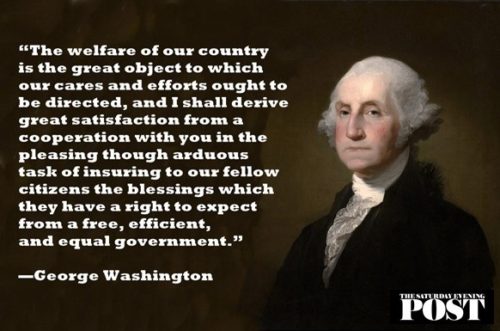The 5 Most Memorable State of the Union Addresses
Ever since George Washington, the American president has given an annual message every year. It’s how he complies with the Constitution’s order that “from time to time,” he report on the state of the union and make “necessary and expedient” recommendations.
Originally delivered orally by the president, the annual report was submitted to Congress as a written document between 1800 and 1913. But President Wilson revived the tradition of personally reading the address.
Since then, there have been only few years when the President sent a written report.
This year, millions will watch Donald Trump’s address to hear what he has to say. If this address is like most, he will talk in broad terms of policy and propose laws that support his priorities.
Few, if any of those laws will make it out of committee. Out of 94 spoken addresses, only a handful made a lasting impression on America or the world.
James Polk
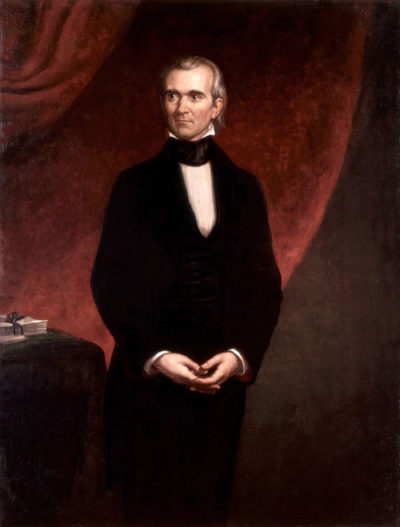
President Polk’s fourth state of the union address in 1848 launched a massive migration westward. In ten years, the white population of California rose from 80 to 300,000 — because the president reported that the rumors of gold in California were true.
Polk said, “The accounts of the abundance of gold in that territory are of such an extraordinary character as would scarcely command belief were they not corroborated by the authentic reports of officers in the public service who have visited the mineral district and derived the facts which they detail from personal observation.”
Abraham Lincoln
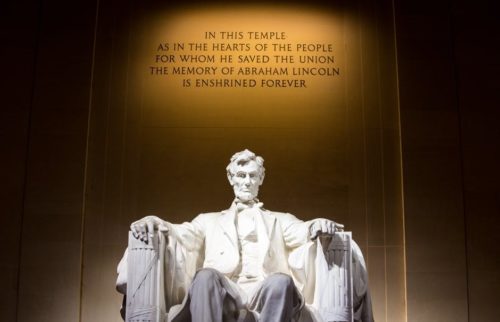
Abraham Lincoln’s 1862 address expressed the principles for which northern men would fight and die over the next three years. It also set the bar for state of the union address for what is arguably the best prose ever written by a president:
“The dogmas of the quiet past are inadequate to the stormy present. The occasion is piled high with difficulty, and we must rise with the occasion. As our case is new, so we must think anew, and act anew. We must disenthrall ourselves, and then we shall save our country.
“Fellow-citizens, we cannot escape history. We of this Congress and this administration will be remembered in spite of ourselves. No personal significance, or insignificance, can spare one or another of us. The fiery trial through which we pass, will light us down, in honor or dishonor, to the latest generation…In giving freedom to the slave, we assure freedom to the free. We shall nobly save, or meanly lose, the last best hope of earth.”
Franklin Roosevelt
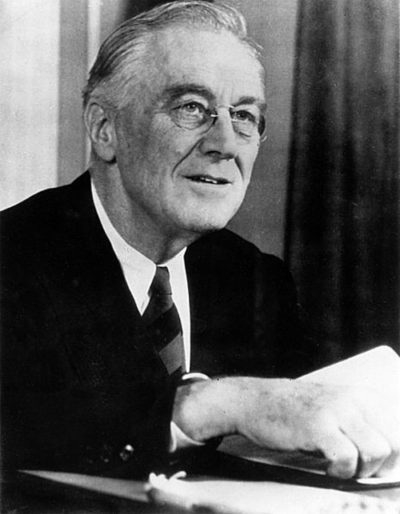
In 1942, President Roosevelt put the country’s wartime goals into words. Achieving these goals would be the full time job for 16 million Americans over the next three years. The U.S., Roosevelt said, was fighting to achieve four freedoms— not just the U.S. but for the entire world.
“Freedom of speech and expression…
“Freedom of every person to worship God in his own way…
“Freedom from want, which… means economic understandings which will secure to every nation a healthy peacetime life for its inhabitants…
“Freedom from fear… a world-wide reduction of armaments to such a point … that no nation will be in a position to commit an act of physical aggression against any neighbor—anywhere in the world.”
Lyndon Johnson
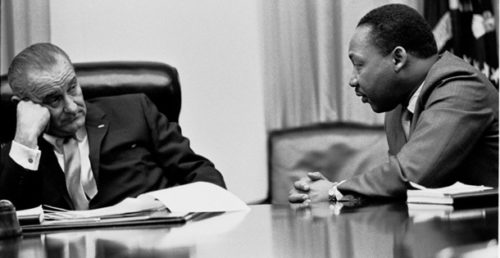
Few addresses touched as many American lives as the 1964 message from Lyndon Johnson, which launched his a highly ambitious “unconditional war on poverty.”
“Our aim,” he said, “is not only to relieve the symptom of poverty, but to cure it and, above all, to prevent it.”
In the months that followed, he pushed legislation that would expand the government’s role in civil rights, education, and health care. It would produce the Office of Economic Opportunity, Job Corps, VISTA, food stamp program, Medicare, and Medicaid.
Bill Clinton
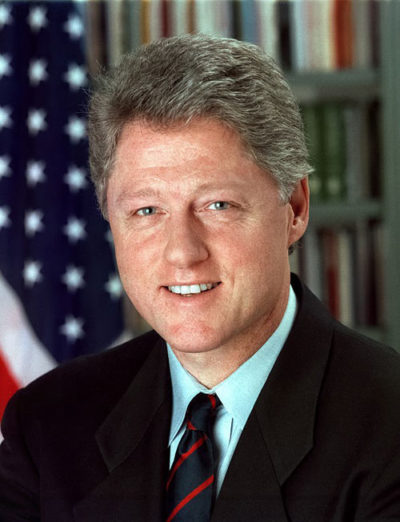
Bill Clinton stunned Congress in his 1996 address when he announced “the era of big government is over.” It was a startling turn-around for the head of a party that had long supported increased government programs to address social ills. In the coming months, Clinton introduced spending cuts that pared back programs and enabled him to announce, in his 1998 address, that the government had balanced its books and was expecting a surplus. “What should we do with this projected surplus? I have a simple four-word answer: Save Social Security first.”
We should also mention, in passing, a few addresses that may not have directly affected Americans’ lives, but contained lines that proved ironic or all too true.
George W. Bush, in his 2003 address, identified Iraq, Iran, and North Korea as an “axis of evil” whose regimes were seeking “weapons of mass destruction.” It was a claim that would come back to haunt the administration when no such weapons were found in Iraq.
In 1974, Richard Nixon was under pressure from the Congressional Committee looking into the Watergate break-in. He told America, “I believe the time has come to bring that investigation and other investigations of this matter to an end. One year of Watergate is enough.” But it wasn’t enough for Congress. Seven months later, Nixon resigned.
In 1975, President Gerald Ford broke with the long tradition of presidents declaring the state of the union was strong. Ford had the courage to honestly say, “I want to speak very bluntly. I’ve got bad news, and I don’t expect much, if any, applause… the state of the Union is not good: Millions of Americans are out of work. Recession and inflation are eroding the money of millions more. Prices are too high, and sales are too slow. This year’s Federal deficit will be about $30 billion; next year’s probably $45 billion. The national debt will rise to over $500 billion.” It was the opening to an address that presented measures he felt would “rebuild our political and economic strength.”
Finally, we should consider George Washington’s report from 1790, which some consider to be the ideal address. It was a concise: a thousand words long. (The longest address was given by President Clinton in 1995: 9,190 words. President Carter’s 1981 report, submitted in writing, exceeded 33,000 words.)
It offered practical advice, was short on flowery language or self praise, and concluded with this essential message that should inspire every president’s address to Congress:
“The welfare of our country is the great object to which our cares and efforts ought to be directed, and I shall derive great satisfaction from a cooperation with you in the pleasing though arduous task of insuring to our fellow citizens the blessings which they have a right to expect from a free, efficient, and equal government.”
